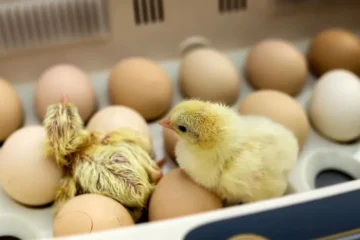As a rabbit owner, you want to provide your furry friend with the best nutrition. One of the common questions many new rabbit parents ask is, can rabbits eat cabbage? This leafy vegetable is widely known for its nutritional benefits, but is it safe for your bunny? Let’s explore the details, from the health benefits to the risks, and how to incorporate cabbage into your rabbit’s diet safely.
Rabbits are herbivores, meaning their diet should be primarily plant-based. A well-balanced rabbit diet includes hay, fresh vegetables, and pellets, with hay being the most important. Hay provides the necessary fiber to keep your rabbit’s digestive system running smoothly and helps with their ever-growing teeth.
When it comes to vegetables, leafy greens are a great addition to your bunny’s meals. But as with all foods, moderation is key. Understanding what vegetables are safe for rabbits and how to introduce them gradually is crucial for maintaining a healthy and happy bunny.
Can rabbits eat cabbage? Yes, they can! But, as with any food, it’s important to feed cabbage in moderation. Cabbage can provide a great source of vitamins and fiber, but overfeeding it can cause digestive issues. It’s vital to keep in mind that cabbage is a gas-producing vegetable, which can lead to bloating or discomfort in your rabbit’s stomach if given in excess.
Is Cabbage Safe for Rabbits?
Yes, cabbage is generally safe for rabbits, provided it’s offered in small amounts and is part of a varied diet. It’s essential to note that some rabbits may be more sensitive to cabbage than others. The key is to observe your bunny’s reaction and adjust accordingly. While cabbage does contain healthy nutrients like Vitamin C, Vitamin K, and fiber, it also has compounds that can lead to digestive problems if consumed in large quantities.
Nutritional Benefits of Cabbage for Rabbits
Cabbage provides several nutritional benefits for rabbits. Below are the main nutrients that make cabbage a beneficial vegetable when offered in moderation:
Vitamin C: Immune Support
Cabbage is an excellent source of Vitamin C, an essential nutrient that helps strengthen your rabbit’s immune system. Rabbits, unlike humans, can produce their own Vitamin C, but they still benefit from additional amounts in their diet, especially during periods of stress or illness.
Vitamin K: Bone and Blood Health
Another key nutrient found in cabbage is Vitamin K. This vitamin plays an important role in blood clotting and bone health, which is crucial for keeping your rabbit’s body in top condition. Including cabbage in your rabbit’s diet occasionally can support overall health, particularly in strengthening bones.
Fiber: Digestive Health
Fiber is a vital part of your rabbit’s diet, and cabbage contains a moderate amount of it. Fiber promotes healthy digestion, helps prevent gastrointestinal issues, and supports healthy weight maintenance. A high-fiber diet is especially important for your rabbit’s digestive system and for maintaining their teeth, which grow continuously.
Potential Risks of Feeding Cabbage to Rabbits
While cabbage benefits for rabbits are notable, there are potential risks involved if it’s fed too frequently. Let’s look at some of the risks that you need to be aware of when feeding cabbage to your bunny.
Gas and Bloating
One of the main concerns with feeding cabbage to rabbits is that it’s a gas-producing vegetable. For some rabbits, cabbage can lead to excessive gas and bloating, which can cause discomfort and even pain. This is why it’s important to monitor your rabbit’s response after introducing cabbage into their diet. If you notice any signs of bloating or discomfort, reduce the amount of cabbage offered or avoid it altogether.
Diarrhea and Digestive Upset
Overfeeding cabbage can also result in diarrhea and digestive upset in rabbits. Too much cabbage can disrupt your rabbit’s delicate digestive system, leading to loose stools or stomach cramps. To avoid this, always offer cabbage in moderation and observe your rabbit’s health after each meal.
Risk of Overfeeding Cabbage
While cabbage can be a nutritious addition to your rabbit’s diet, feeding it too often or in large amounts can cause health problems. The key is to feed it as an occasional treat or supplement, rather than a regular food source. Too much cabbage can lead to a lack of balance in your bunny’s diet, which can cause obesity, gastrointestinal problems, and other health issues.
How Cabbage May Affect Your Rabbit’s Stomach
Some rabbits are more sensitive to cabbage than others. If your rabbit’s stomach is particularly sensitive, cabbage could cause discomfort, especially if they’re not accustomed to it. Start by introducing cabbage in very small amounts, and increase the serving gradually if your bunny tolerates it well.
How Much Cabbage Can Rabbits Eat?
When feeding cabbage to your rabbit, portion size and frequency are crucial to avoid digestive issues. So, how much cabbage can rabbits eat?
Portion Sizes and Frequency
A small leaf or two of cabbage is typically sufficient for a rabbit. You can offer cabbage a few times a week, but it should not be a daily part of their diet. Too much cabbage can overwhelm your rabbit’s digestive system, so always ensure it’s part of a varied diet that includes hay, leafy greens, and occasional treats.
Recommendations for Introducing Cabbage Gradually
As with any new food, introduce cabbage gradually into your rabbit’s diet. Start with a small portion and monitor how they respond. If your bunny enjoys the cabbage and has no adverse reactions, you can increase the serving size slightly. However, keep in mind that cabbage should always be given as part of a balanced diet, not as the main food source.
Types of Cabbage Safe for Rabbits
Rabbits can enjoy various types of cabbage, but not all types are equal. Let’s look at the most common varieties and their suitability for your rabbit.
Green Cabbage
Green cabbage is the most common type of cabbage available and is generally safe for rabbits when fed in moderation. It contains essential nutrients like Vitamin C and fiber, which are beneficial for your bunny’s health.
Red Cabbage
Red cabbage offers a similar nutrient profile to green cabbage, but it contains more antioxidants. It’s a healthy option for rabbits and can be included in their diet occasionally. Just like green cabbage, red cabbage should be fed in moderation to avoid digestive upset.
Savoy Cabbage
Savoy cabbage has crinkly leaves and a slightly sweeter taste compared to green and red cabbage. It’s safe for rabbits in small amounts, but its high fiber content can be a bit difficult for some rabbits to digest. Always observe your bunny’s reaction to savoy cabbage before feeding it regularly.
What to Avoid: Cooked or Fermented Cabbage
Cooked cabbage should never be fed to rabbits, as the cooking process alters its nutrient profile and makes it harder for rabbits to digest. Similarly, fermented cabbage, such as sauerkraut, contains high amounts of sodium and should never be fed to your rabbit.
How to Prepare Cabbage for Rabbits
Before feeding cabbage to your rabbit, it’s essential to prepare it properly. Here are some tips on how to safely feed cabbage to your bunny:
Washing and Chopping Cabbage
Always wash cabbage thoroughly to remove any pesticides or chemicals. Chop it into small, manageable pieces to prevent choking hazards, especially for younger or smaller rabbits.
Feeding Tips for Optimal Health
Feed cabbage to your rabbit raw, as cooking it can destroy important nutrients. Remember, moderation is key, so offer cabbage as a treat, not as a staple food.
Alternative Vegetables for Rabbits
While cabbage is a healthy treat in moderation, your rabbit can enjoy a variety of other safe vegetables for rabbits. Here are some great options:
- Leafy Greens: Romaine lettuce, spinach, and arugula are excellent choices.
- Other Vegetables: Carrots, bell peppers, and kale can provide variety and additional nutrients.
- Fruits: Offer fruits like apples or berries as occasional treats, ensuring they are washed thoroughly.
Feeding Cabbage and Other Vegetables in Moderation
A balanced diet for bunnies includes a variety of vegetables, fruits, hay, and pellets. Cabbage can be part of this variety, but it should never be the sole focus. Regularly rotate your rabbit’s vegetables to provide a wide range of nutrients, and always ensure that hay is the primary part of their diet.
Signs of Digestive Issues in Rabbits
If you feed cabbage to your rabbit and notice any signs of digestive distress, such as gas, bloating, or diarrhea, it’s important to take immediate action. Cut back on the cabbage and observe your rabbit’s symptoms. If the symptoms persist, consult your veterinarian for advice on your bunny’s diet.
The Role of a Veterinarian in Your Rabbit’s Diet
Before making any major changes to your rabbit’s diet, it’s always a good idea to consult a veterinarian. A professional can provide specific advice based on your rabbit’s health needs and help you ensure a balanced diet for your bunny.
Conclusion
Can rabbits eat cabbage? Yes, they can! Cabbage can be a nutritious addition to your rabbit’s diet when fed in moderation. Always offer a variety of vegetables, alongside hay, to keep your rabbit healthy and happy. By following the proper feeding guidelines and introducing cabbage gradually, you can safely incorporate this healthy vegetable into your bunny’s meals.
Frequently Asked Questions
Can rabbits eat cabbage every day?
No, cabbage should be fed to rabbits occasionally, in moderation, as part of a varied diet.
Is cabbage good for rabbits?
Yes, cabbage provides essential nutrients like Vitamin C, Vitamin K, and fiber, but should be fed in small portions.
Can cabbage cause digestive problems in rabbits?
Yes, overfeeding cabbage can lead to gas, bloating, or diarrhea in rabbits.
What types of cabbage are safe for rabbits?
Green, red, and savoy cabbage are safe for rabbits when fed in moderation, but avoid cooked or fermented cabbage.
How much cabbage can I give my rabbit?
Offer a small leaf or two of cabbage a few times a week, monitoring your rabbit for any digestive issues.
Stay in touch to get more updates & alerts on WashingtonGreek! Thank you



